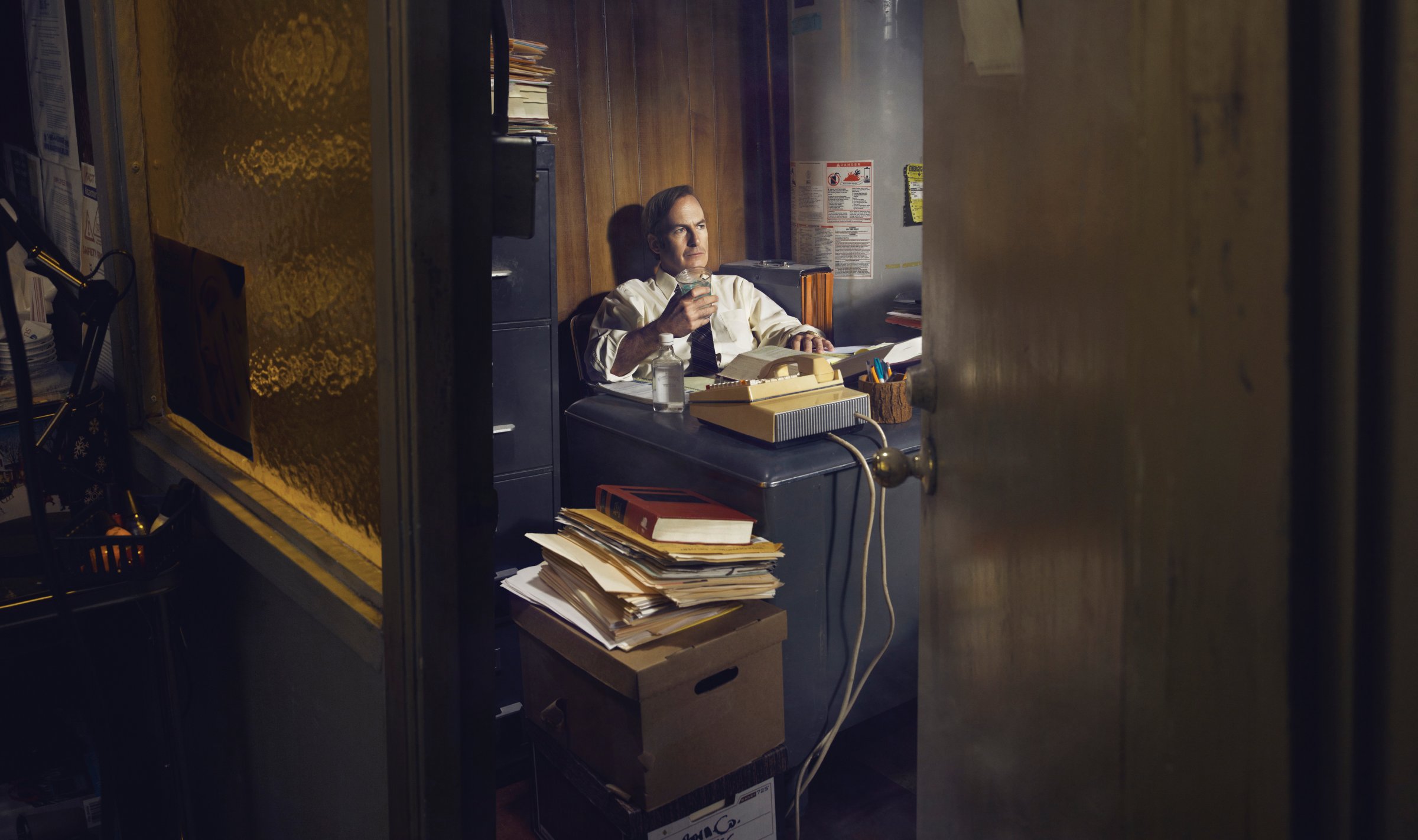
In this week’s print TIME, I talk to Bob Odenkirk and co-creators Vince Gilligan and Peter Gould about their Breaking Bad prequel featuring the man who would be Walter White’s lawyer—Better Call Saul (premieres on AMC Feb. 8)—and review the new show. The article is for TIME subscribers, so I can only share so much of it pro bono. But I will say that I was skeptical of the idea—as I say in the article, it had shades of 2001’s The Lone Gunmen, the superfluous, dark-comic X-Files spinoff that Gilligan also ran—yet after three episodes, I have to say it’s… pretty good.
And in fact, “pretty good” might be the right ambition for this series, even if it necessarily risks unflattering comparison to the grand sweep and ambitions of Breaking Bad. On its face, Saul is a similar show with a similar arc: Jimmy McGill (Saul, before he adopted his nom de bus bench) is a struggling but essentially law-abiding guy who, we know, will slip-slide the crooked path to criminality, or, at least, criminality-enabling. (The reverse, ironically, of the redemption and name-changing of the New Testament’s Saul.)
What distinguishes it in the early going is precisely that it has different aims–it takes the character seriously, but it’s more of an entertainment, more picaresque. And ultimately, it’s about a different kind of figure:
But we’ve seen enough brooding bush-league Walter Whites in cable antihero dramas that that’s a good thing. Saul is in the same universe but a different tradition, that of the irresistible trickster. It’s a monument to malarkey. There is something in people that loves a BS artist–the rogue, the flimflam man who carries no gun but gets by on his words, on what he makes, literally, out of thin air.
Jimmy McGill has elements of James Garner’s TV rascals (Bret Maverick, Jim Rockford) but filtered through Odenkirk’s ah-jeez Midwestern appeal. (Like Odenkirk, Jimmy hails from Chicagoland.) You may not admire him or his clients, but he embodies a certain human spirit of ingenuity. “I love that he’s indefatigable,” Odenkirk says. “You can’t stop him. It’s funny to see him dig a hole as he tries to dig himself out of a hole.” Or as a scary character puts it after Jimmy tap-dances his way out of a threatening situation, “You got a mouth on you.”
I don’t want to claim to have Better Call Saul entirely figured out after three episodes; Breaking Bad, after all, was itself a more comic show in its early going, making more of the absurdity of a chemistry teacher in his tighty whities figuring out how to become a meth dealer. (OK, to the extent that you can consider a show that involves dissolving a dead body in acid to be comic.) It changed its tone and aesthetic as Walter White evolved, and maybe its prequel will also. Or maybe it won’t, and maybe it will simply remain a diverting, well-executed lagniappe–not one of the greatest series on TV, but that’s certainly no crime.
For now, I simply tried to measure Saul by the yardstick: would I want to watch this show if I knew none of the references, none of the characters’ back stories? I was a doubter. But for now, Saul, or should I say Jimmy, has fast-talked me into believing.
More Must-Reads From TIME
- The 100 Most Influential People of 2024
- Coco Gauff Is Playing for Herself Now
- Scenes From Pro-Palestinian Encampments Across U.S. Universities
- 6 Compliments That Land Every Time
- If You're Dating Right Now , You're Brave: Column
- The AI That Could Heal a Divided Internet
- Fallout Is a Brilliant Model for the Future of Video Game Adaptations
- Want Weekly Recs on What to Watch, Read, and More? Sign Up for Worth Your Time
Contact us at letters@time.com